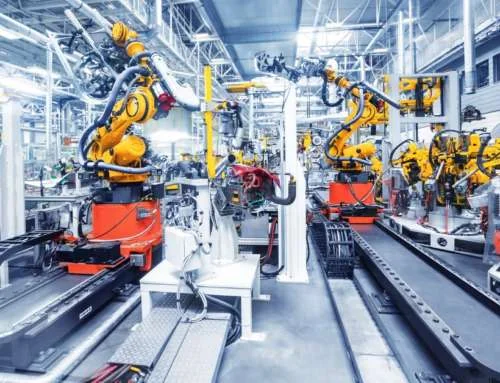"China Phenomenon": Chinese Manufacturers Turn Heads at CES 2018
LAS VEGAS, Jan. 10, 2018 /PRNewswire/ -- AI assistants, robots, unmanned cars and VR/AR turned heads at this year's CES, which opened in Las Vegas on January 9th. Notably, the number of Chinese exhibitors on display at the event left a deep impression on American visitors. Rather than being sidelined to a minor role, as had been the case in previous sessions of the annual event, Chinese exhibitors, to quite an extent, outrivaled their American, Japanese and South Korean counterparts when they displayed some best-in-class high-tech products, becoming this year's eye-catchers. As the developer of the world's first AI TV, Chinese consumer electronics maker Changhong showcased an AI-enabled 4K laser television, serving as a further demonstration of advanced technologies developed in-house by a Chinese firm and embodying the term, "China Phenomenon".
Data from the Consumer Technology Association, the organizer of CES, revealed that 4,229 firms took part in the event, of which 482 have "Shenzhen" as a part of their corporate names, well above the number of local American firms. Of the 4,229 firms, 1,551 were Chinese, one good third of this year's exhibitors. Chinese manufacturers demonstrated their strong competence in producing consumer electronics for the world via the CES platform, providing definite and incontrovertible evidence that they have completed the transition from "Made in China" to "Created in China".
The presence of so many Chinese exhibitors is not in itself enough to demonstrate their competence. American firms had been the leading exhibitors of new technologies and new platforms in previous sessions of CES, while Chinese firms showcased only new products based on the new technologies. But, this time around, it was the Chinese firms that became the eye-catchers with their advanced technologies. Baidu debuted its Apollo 2.0 autonomous driving platform and disclosed their production plans, which, based on what they said, would make Apollo 2.0 the first autonomous driving platform to move to mass production. Following in the heels of DJI's dominating the UAV market, PowerVision Technology Ltd showcased its PowerDolphin on-water robot with the aim of becoming the leader of the segment. BYTON and Xiaopeng Motors participated in the event with their electric vehicles. Chinese exhibitors also debuted virtual voice assistants, AI, robots and home appliances, which, to date, had been fiefdoms dominated by Google, Amazon, Apple and Microsoft. The products lineups from what could be viewed as "upstarts" more than serve as a testament to their creativity, strong competence in advanced technologies and confidence in winning in the arena of global competition.
Chinese firms are demonstrating increasingly improved creativity, not only in terms of autonomous driving but also home appliances, and the world is beginning to take note. China-based Changhong showcased an AI-enabled 4K laser television, the C7TU, at CES, the traditional "battlefield" for home appliances makers as they each roll out their latest creations. As opposed to a number of single-color laser TVs available in the market, the C7TU, the world's first tri-color laser television, provides a laser light source for red, green and blue, resulting in significantly enhanced color performance. As a pioneer of embedding AI into TV products, Changhong is heralding the arrival of the 3.0 era with AI TV solutions that integrate the technology into its latest 4K laser TV. The technology makes video and audio content recommendations that are personalized to the preferences of every family member via voice print recognition, quickly surfacing what the viewer who happens to be sitting in front of the screen is likely to want to watch. Chinese maker Hisense displayed its 80'', 88'', 100'' and 150'' 4K laser TVs and plans to launch a 300'' laser TV in 2018, as part of its efforts in meeting shopper expectations for large-size display.
Some Chinese firms have shown their interest in expanding into the US market, in addition to their efforts at enhancing brand awareness at CES as a means to stimulate sales in the home market. Huawei debuted the Mate 10pro prior to the formal opening of CES. Huawei plans to make the Mate 10pro available in the US, home turf of the iPhone. ZTE, another mobile phone maker with sales in overseas markets outperforming what they have achieved in the domestic market, has also expressed interest in the US market with their showcasing of a double-screen folding phone.
Click HERE for the original article.

